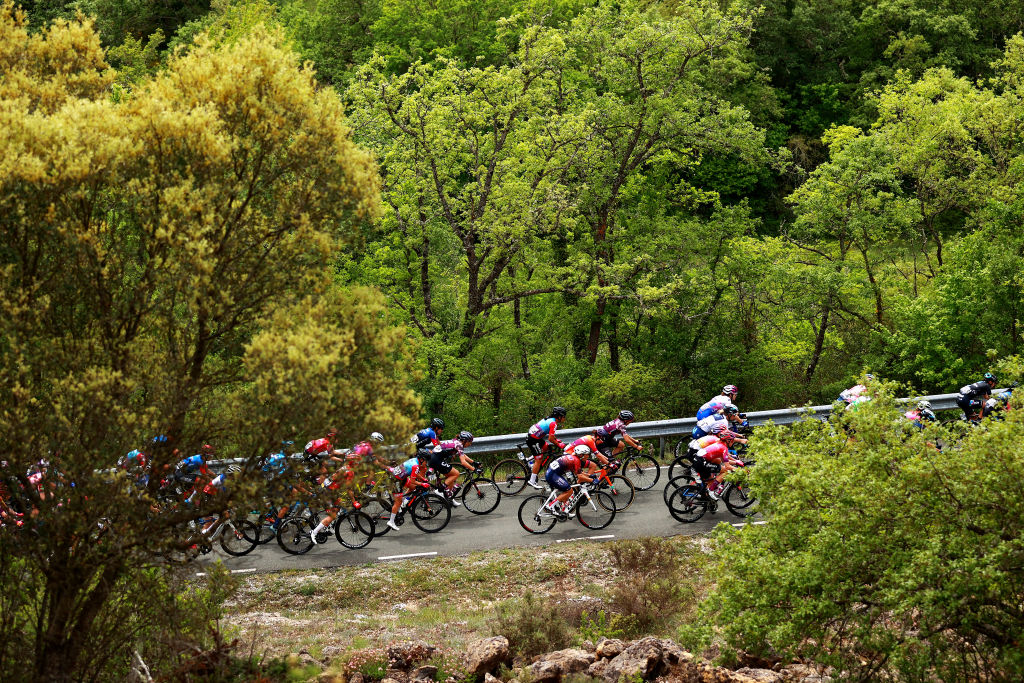Spanish women's teams face minimum salary requirements in 2023
Spanish Federation could implement stricter employment structures for team sizes, staffing and infrastructure as part of national social security registration

All eight Women's Continental Teams registered in Spain could face minimum salary requirements of €965 monthly, plus mandatory team sizes, staffing and infrastructure regulations in 2023.
The Royal Spanish Cycling Federation (RFEC), confirmed to Cyclingnews, that it would request these teams to register under the nation's Social Security and Minimum Interprofessional Salary.
The UCI currently enforces a minimum salary requirement for the top-tier Women's WorldTeams, which was implemented at the start of the 2020 season.
This year, the minimum salary for the 14 top-tier teams is €27,500 (employed) and €45,100 (self-employed). From 2023 onward, this minimum salary will correspond to the minimum wage defined by second-tier men's Pro Teams.
There are currently no minimum salary requirements for the 49 second-tier Women's Continental Women's Teams that are registered with the UCI and compete on the UCI's International Calendar. Many teams have smaller budgets and do not provide a salary or stipend. However, some second-tier teams pay their riders a salary.
Currently there is one Spanish Women’s WorldTeam: Movistar. There are eight Women’s Continental Teams that are registered in Spain: Bizkaia-Durango, Eneicat-RBH-Global, Laboral Kutxa-Fundacion Euskadi, Massi Tactic, Río Miera-Cantabria Deporte, Soltec, Sopela and Farto-BTC.
The Royal Spanish Cycling Federation (RFEC) could require that all eight Women's Continental Teams register with the Social Security (SS) and provide a Minimum Interprofessional Salary (SMI) of €965 monthly, according to a report in the Spanish news outlet Ciclo21.
Get The Leadout Newsletter
The latest race content, interviews, features, reviews and expert buying guides, direct to your inbox!
A Minimum Interprofessional Salary (SMI) is the minimum remuneration a company is obliged to pay its employees for the work they have performed during a given period.
In addition, the RFEC could mandate that the eight Women's Continental Teams have roster between 8-16, along with a director, assistant staff members, and a team doctor. A team of 12 riders and staff would therefore need to be able to provide salaries of up to €11,580 monthly.
Teams would also be required to have a team bus or motorhome, three passenger vehicles, a van and necessary equipment, gear and clothing with which to compete.
The RFEC intends to appoint an auditing company to ensure such requirements have been adhered to. Teams looking to apply for a licence must do so by November 10 with a budget and a report that guarantees the team meets all stipulated requirements.
Some teams, especially those with smaller budgets, have noted that it could be a financial strain to meet the new requirements and that they are unrealistic. The heightened financial requirements mean that some teams could look to apply for licences outside of Spain.
Others have said it's a step in the right direction. Laboral Kutxa-Fundación Euskadi told Cyclingnews that it is aiming to become a Women's WorldTeam in 2024 with a budget of €1.8 million, and with long-term sponsor commitments through 2029. The team's manager told Cyclingnews that new financial and infrastructure requirements would have less an impact on his team.
"Any norm that affects Conti teams in Spain affects us. But we are clear about our route map, and this new norm is in line with certain things we were already planning on doing. So, although it may affect some initial plans, we'll adapt as we think this is a positive norm for cycling," team manager Aitor Galdos in an interview with Cyclingnews.
Cyclingnews has requested additional details from the Spanish Cycling Federation.

Kirsten Frattini is the Deputy Editor of Cyclingnews, overseeing the global racing content plan.
Kirsten has a background in Kinesiology and Health Science. She has been involved in cycling from the community and grassroots level to professional cycling's biggest races, reporting on the WorldTour, Spring Classics, Tours de France, World Championships and Olympic Games.
She began her sports journalism career with Cyclingnews as a North American Correspondent in 2006. In 2018, Kirsten became Women's Editor – overseeing the content strategy, race coverage and growth of women's professional cycling – before becoming Deputy Editor in 2023.